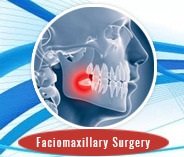Dental Implants have changed the face of dentistry over the last 25 years. A dental implant is an artificial tooth root that a dentist places into your jaw to hold a replacement tooth or bridge. Dental implants are an ideal option for people in good general oral health who have lost a tooth or teeth due to periodontal disease, an injury, or some other reason.
Types of Implants in Use Today
- Endosteal (in the bone): This is the most commonly used type of implant. The various types include screws, cylinders or blades surgically placed into the jawbone. Each implant holds one or more prosthetic teeth. This type of implant is generally used as an alternative for patients with bridges or removable dentures.
- Subperiosteal (on the bone): These are placed on top of the jaw with the metal framework’s posts protruding through the gum to hold the prosthesis. These types of implants are used for patients who are unable to wear conventional dentures and who have minimal bone height.
Advantages of Dental Implants over Dentures or a Bridge
Every way you look at it, dental implants are a better solution to the problem of missing teeth.
- Esthetic: Dental implants look and feel like your own teeth. Since dental implants integrate into the structure of your bone, they prevent the bone loss and gum recession that often accompany bridgework and dentures. No one will ever know that you have a replacement tooth.
- Tooth-saving: Dental implants don’t sacrifice the quality of your adjacent teeth like a bridge does because neighbouring teeth are not altered to support the implant. More of your own teeth are left untouched, a significant long-term benefit to your oral health.
- Confidence: Dental implants will allow you to once again speak and eat with comfort and confidence! They are secure and offer freedom from the irksome clicks and wobbles of dentures.
- Reliable: The success rate of dental implants is highly predictable. They are considered an excellent option for tooth replacement.
Problems with dental implants
Dental implant failures are most commonly related to the dental implants not osseointegrating with the bone or more simply put, the dental implants do not bond properly to the jaw bone as well as expected. Failure rates however, are only about 3-8 %.
Dental Implants Procedure
Depending on your specific condition and the type of implant chosen, your dentist will create a dental implant treatment plan which might involve just replacement procedures or dental implants surgery, tailored to meet your needs.
- Replacing a Single Tooth: If you are missing a single tooth, one implant and a crown can replace it. A dental implant replaces both the lost natural tooth and its root
- Replacing Several Teeth: If you are missing several teeth, implant-supported bridges can replace them. Dental implants will replace both your lost natural teeth and some of the roots
- Replacing All of Your Teeth: If you are missing all of your teeth, an implant-supported full bridge or full denture can replace them. Dental implants will replace both your lost natural teeth and some of the roots
- Sinus Augmentation: A key to implant success is the quantity and quality of the bone where the implant is to be placed. The upper back jaw has traditionally been one of the most difficult areas to successfully place dental implants due to insufficient bone quantity and quality and the close proximity to the sinus. Sinus augmentation can help correct this problem by raising the sinus floor and developing bone for the placement of dental implants
- Ridge Modification: Deformities in the upper or lower jaw can leave you with inadequate bone in which to place dental implants. To correct the problem, the gum is lifted away from the ridge to expose the bony defect. The defect is then filled with bone or bone substitute to build up the ridge. Ridge modification has been shown to greatly improve appearance and increase your chances for successful implants that can last for years to come
Dental Implant Costs in India
Dental implants cost in India is very low compared to other countries. In the United States, for example, dental implants prices typically range from $3k to $11k, depending on the number of teeth. Cosmozone offers affordable dental implants prices in India. Before you start considering this, you should know that there are significant costs to this, since cheap dental implants may not be the best solution. Each year, many people choose to get surgical dental implants to replace teeth that are subject to decay or have been affected out through injury.
So, what do implants cost? The average price of dental implants range between $1,000 to $5,000 per tooth- and in many cases, insurance will cover at least part of this amount. Below, are some factors that can help you better pinpoint where your total implants costs will wind up in this range?
1. The Number of Teeth Need to Be Implanted: Of course, this is one of the most important factors that will determine the cost just how many implants do you need. This can affect the procedural cost immensely. Getting a full mouth of implants may take several visits.
2. Dentist: Depending on whom you choose to administer your implants will also affect the costs as every dentist charges on a different scale.
3. Implantation Type: There are actually different kinds of implantation involved with implants, and this can affect your overall costs. A brief consultation with your implant specialist will determine which implantation is best for your situation.
4. The Type of Material: Moreover, different quality materials are used for dental implants and depending on the grade of the material, this will also affect cost. Higher the quality of the materials, higher the cost.
5. Dental-Insurance: Of course, it is always a good idea to check with your insurance carrier to see if they will cover some or all of your dental implants in some cases, they will certainly help with the cost of dental implants. Many cosmetic dentists may also have their own financing program at their dental health clinics. Call them and ask about the kinds of programs they may have available.
















